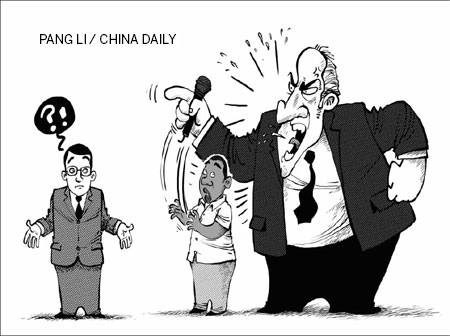
I recently read a New York Times opinion piece entitled "Africa's Free Press Problem" byMohammed Keita and wondered which Africa he was writing about. Keita makes sweepingstatements about the state of press freedom in Africa but ends up only citing the cases ofRwanda and Ethiopia.
The New York Times jumps to the simplistic conclusions about Africa that are typical of Westernmedia reports, conveniently generalizing situations in one or two countries to frame a diverse, 54-nation continent with all manner of stereotypes. It is quite clear that emphasizing neo-liberaldemocratic ideals without considering the interests of African communities is one of the factorsthat fuels conflicts on the African continent. It is quite justifiable for the leaderships in countriessuch as Rwanda and Ethiopia to elevate unity and stability over the freedom of the oftentimesirresponsible, sensational and inflammatory press. The fact is the media could fuel a new roundof warmongering leading to the kind of horrors witnessed in the 1994 Rwanda genocide. Thepossibility of a renewed Hutu-Tutsi war is never too far from the surface. It must beremembered that the media was used in the Rwanda to whip up deep-seated ethnic hatred,and this ethnic hatred was first planted through the divide and rule policies of Rwanda'scolonizers.
When countries are faced with challenges to their very survival, a more nuanced balancebetween press freedom and the needs of development is necessary.
The New York Times writer shows his true colors by demonizing China's rising media presencein Africa. He ignores the fact that the Western media is a more entrenched and destabilizingpresence on the continent than the Chinese media. In Kenya for instance, it is a well-known factthat pandering to narrow political interests in the aftermath of the 2007 general election bysome media outlets nearly burst the seams of an otherwise tranquil nation. But moresignificantly, most Africans are tired of the Western media's instance on portraying Africa as acontinent of disease, war and poverty and nothing else.
If indeed unfettered press freedom is the one and only ingredient for development, why thenhave most African countries not achieved economic prosperity over the last five decades ofindependence?
Keita wonders why China is being embraced on the continent. There are many reasons.Perhaps the outstanding one is the fact that China is providing a different perspective toAfrican media and society: a new approach where governments, the media and the peopleconsider each other partners in development. Development, after all, is an imperative thatAfrica sorely needs if it is finally to put an end to poverty.
The New York Times article suggests that one of the roles of the media in Africa is to mobilizefunds for emergencies such as famines, and that "with civil society, the political opposition andthe press severely restricted, there is hardly any domestic scrutiny over how the governmentuses billions of dollars of international assistance from Western governments". But one onlyneeds to read economist and former World Bank consultant Dambisa Moyo's book, Dead Aid:Why Aid Is Not Working and How There is Another Way for Africa, to appreciate why and howWestern aid has failed the continent and needs to be rethought. She argues that foreign aid isa cause of Africa's persistent poverty and fosters dependency and corruption, hinderingeconomic growth in Africa.
China already offers a different approach to aid through investment in infrastructure and thereal economy that aids development and raises people's standard of living.
In his conclusion, Keita, in a subtle way, seeks financial support for Africa's commercial mediaas well as press freedom organizations from the West to counter China's influence in Africa.This is the main thrust of his article. Well, both China and the West are engaging Africa withdifferent models and the media sector is no exception. The Western approach to mediaassistance is informed by ideology. Its support is intent on changing entire social systems to fitinto their Western-centric worldview. The Chinese approach is based on broader Sino-Africarelations that eschew preaching or exporting ideology to Africa, settling instead for pragmaticareas of collaboration. Africans should be allowed to choose between these two modelsthemselves.
The writer is a Kenyan communications researcher based at the Communication University ofChina.



No comments:
Post a Comment